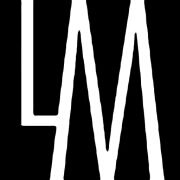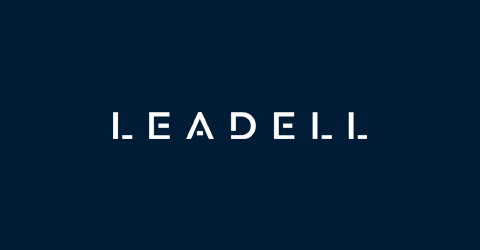Best Media, Technology and Telecoms Lawyers in Republic of Lithuania
Share your needs with us, get contacted by law firms.
Free. Takes 2 min.
Or refine your search by selecting a city:
List of the best lawyers in Republic of Lithuania
About Media, Technology and Telecoms Law in Republic of Lithuania
Media, Technology, and Telecoms Law in the Republic of Lithuania covers a wide range of legal issues related to the media, technology, and telecommunications industries. This area of law governs everything from intellectual property rights to data privacy regulations. Understanding the legal framework in Lithuania is crucial for businesses and individuals operating in these sectors.
Why You May Need a Lawyer
You may need a lawyer in the field of Media, Technology, and Telecoms in Lithuania if you are dealing with issues such as intellectual property disputes, data privacy breaches, contract negotiations, or regulatory compliance matters. A lawyer can help you navigate the complex legal landscape and protect your rights and interests.
Local Laws Overview
In Lithuania, Media, Technology, and Telecoms Law is governed by a variety of statutes and regulations. Key areas of focus include the Law on the Provision of Information to the Public, the Law on Electronic Communications, and the Law on Personal Data Protection. These laws set out rights and obligations for businesses and individuals operating in these industries.
Frequently Asked Questions
1. What is the role of the Lithuanian Communications Regulatory Authority?
The Lithuanian Communications Regulatory Authority is responsible for regulating the electronic communications market in Lithuania, ensuring fair competition, and protecting consumer rights.
2. How are intellectual property rights protected in Lithuania?
In Lithuania, intellectual property rights are protected through a system of patents, trademarks, and copyrights. Violations of these rights can result in legal action and damages.
3. What are the data protection laws in Lithuania?
Lithuania has implemented the General Data Protection Regulation (GDPR) to protect the personal data of individuals. Companies must comply with strict data protection requirements or face penalties.
4. How are media outlets regulated in Lithuania?
Media outlets in Lithuania are subject to regulations that aim to ensure journalistic independence, freedom of speech, and ethical standards. The media council oversees compliance with these regulations.
5. What are the requirements for licensing telecom services in Lithuania?
Telecom service providers in Lithuania must obtain a license from the Communications Regulatory Authority to operate legally. The licensing process involves meeting specific criteria and paying relevant fees.
6. Can I appeal a decision by the Communications Regulatory Authority?
Yes, you can appeal decisions made by the Communications Regulatory Authority to the court if you believe they are unjust or unlawful. Legal representation may be required for this process.
7. Are there restrictions on advertising in Lithuania?
Lithuania has regulations governing advertising, particularly in relation to false or misleading advertising practices. Advertisers must comply with these rules to avoid legal consequences.
8. How does copyright law apply to digital content in Lithuania?
Copyright law in Lithuania protects digital content, including software, websites, and multimedia works. Violations of copyright can result in legal action and damages.
9. What are the penalties for non-compliance with data protection laws in Lithuania?
Non-compliance with data protection laws in Lithuania can result in fines, sanctions, and reputational damage for businesses. It is essential to take data privacy regulations seriously.
10. How can I ensure compliance with Media, Technology, and Telecoms laws in Lithuania?
To ensure compliance with Media, Technology, and Telecoms laws in Lithuania, seek legal advice, regularly review and update policies and procedures, and stay informed about changes in the legal landscape.
Additional Resources
For more information on Media, Technology, and Telecoms law in Lithuania, you can consult the Lithuanian Communications Regulatory Authority, the State Data Protection Inspectorate, and legal professionals specializing in this area of law.
Next Steps
If you require legal assistance in the field of Media, Technology, and Telecoms in Lithuania, it is advisable to contact a reputable law firm with experience in this area. A lawyer can provide guidance, represent your interests, and help you navigate complex legal issues effectively.
Lawzana helps you find the best lawyers and law firms in Republic of Lithuania through a curated and pre-screened list of qualified legal professionals. Our platform offers rankings and detailed profiles of attorneys and law firms, allowing you to compare based on practice areas, including Media, Technology and Telecoms, experience, and client feedback.
Each profile includes a description of the firm's areas of practice, client reviews, team members and partners, year of establishment, spoken languages, office locations, contact information, social media presence, and any published articles or resources. Most firms on our platform speak English and are experienced in both local and international legal matters.
Get a quote from top-rated law firms in Republic of Lithuania — quickly, securely, and without unnecessary hassle.
Disclaimer:
The information provided on this page is for general informational purposes only and does not constitute legal advice. While we strive to ensure the accuracy and relevance of the content, legal information may change over time, and interpretations of the law can vary. You should always consult with a qualified legal professional for advice specific to your situation.
We disclaim all liability for actions taken or not taken based on the content of this page. If you believe any information is incorrect or outdated, please contact us, and we will review and update it where appropriate.
Browse media, technology and telecoms law firms by service in Republic of Lithuania
Republic of Lithuania Attorneys in related practice areas.
Browse media, technology and telecoms law firms by city in Republic of Lithuania
Refine your search by selecting a city.













